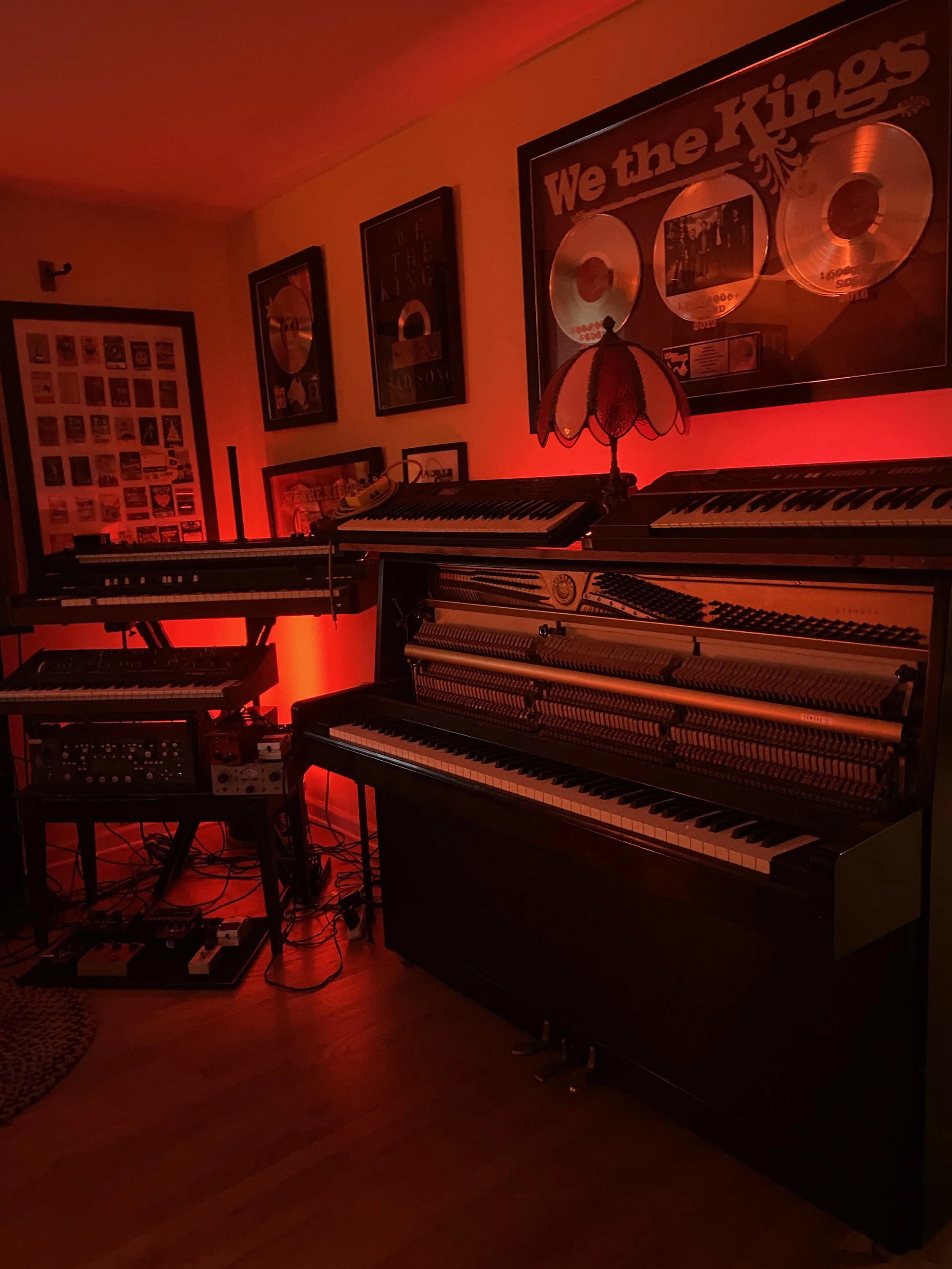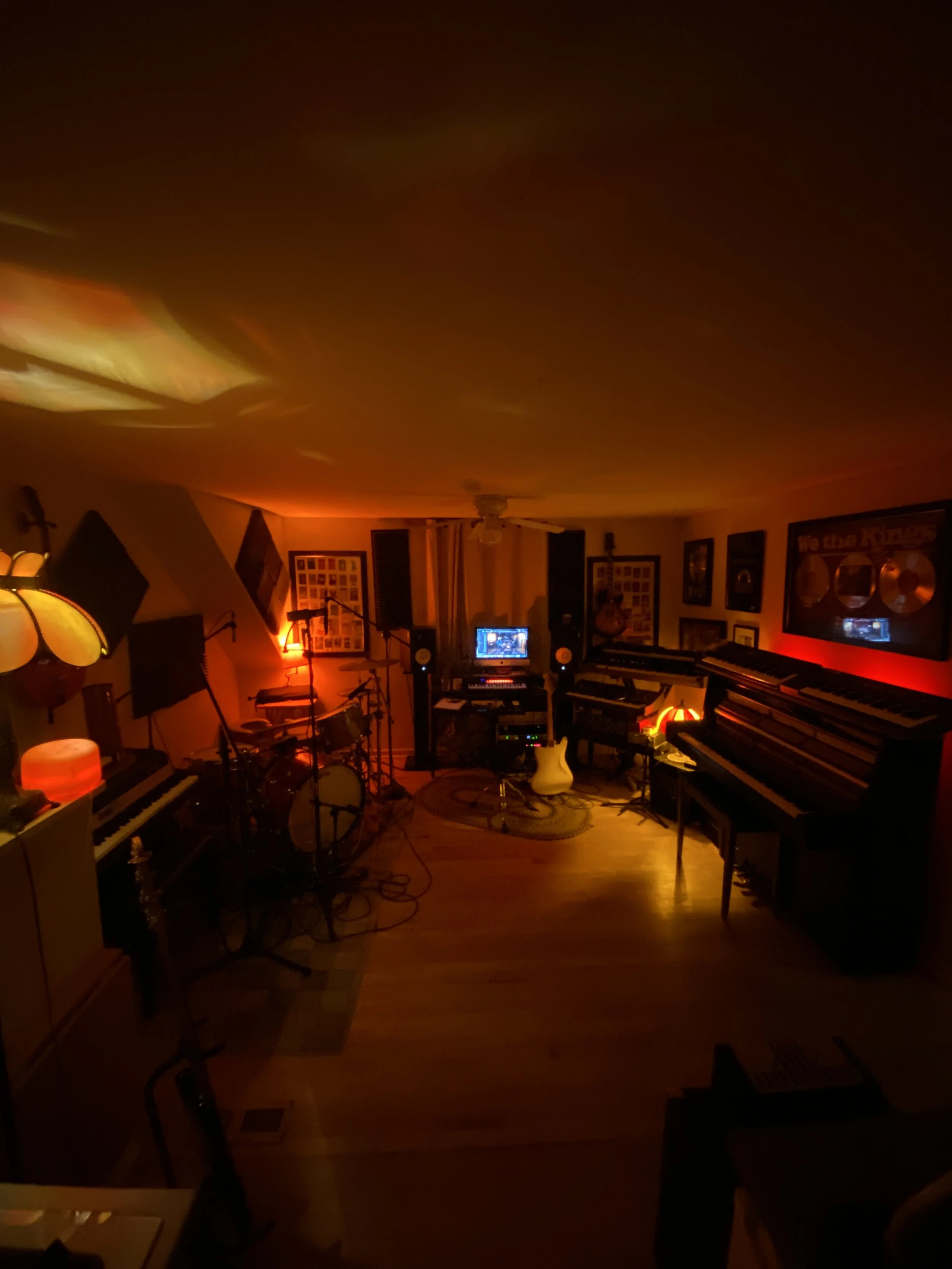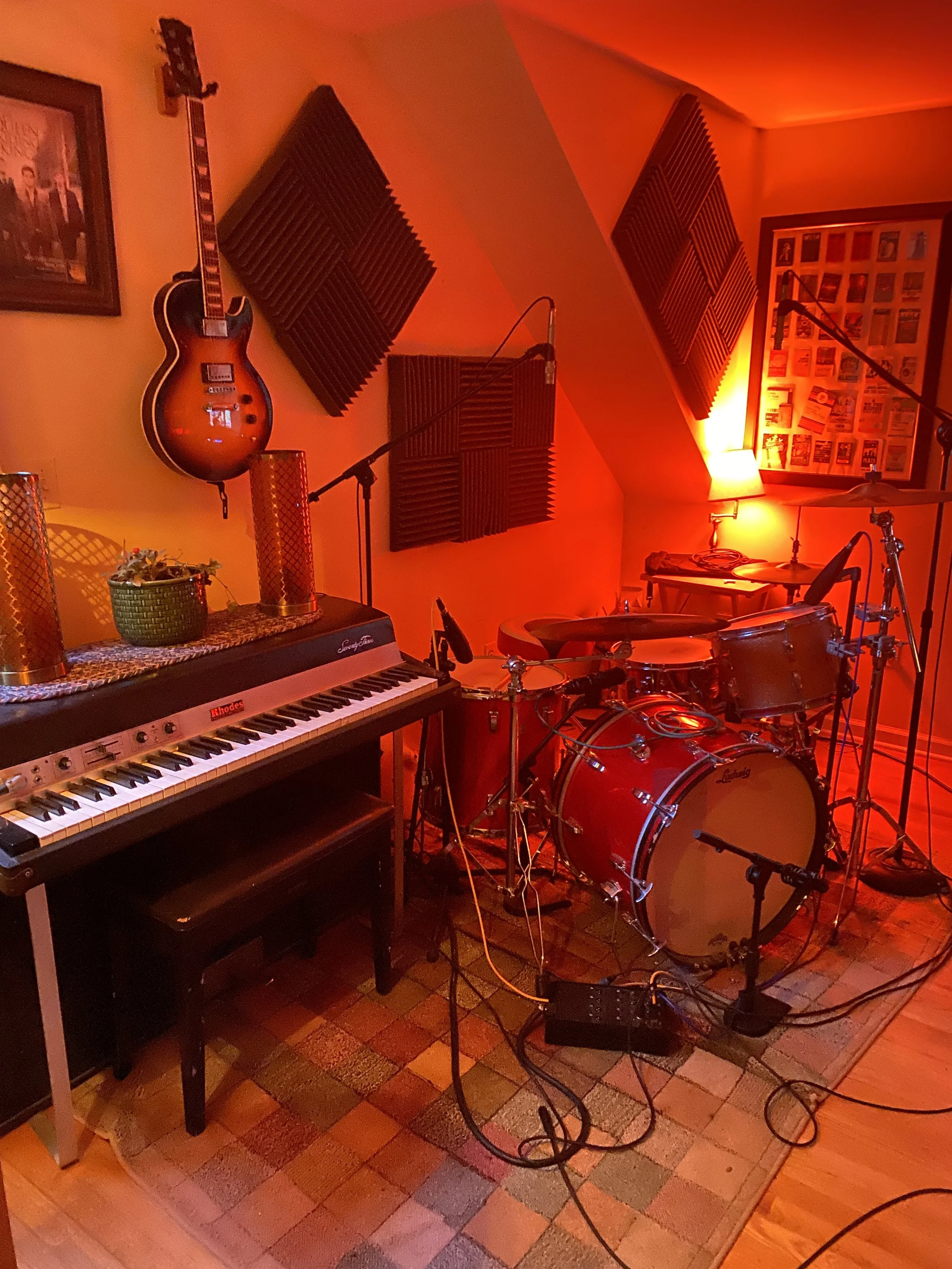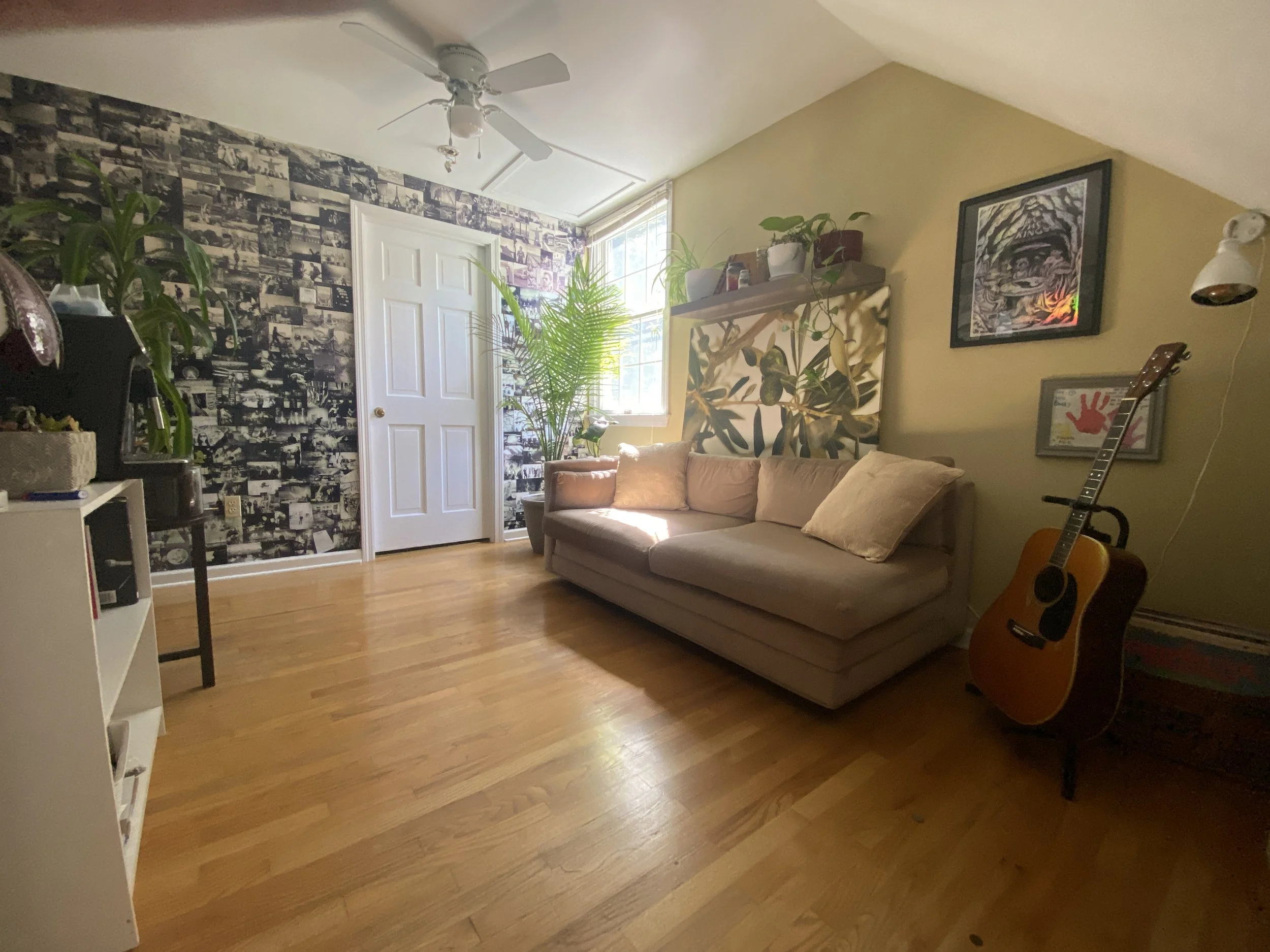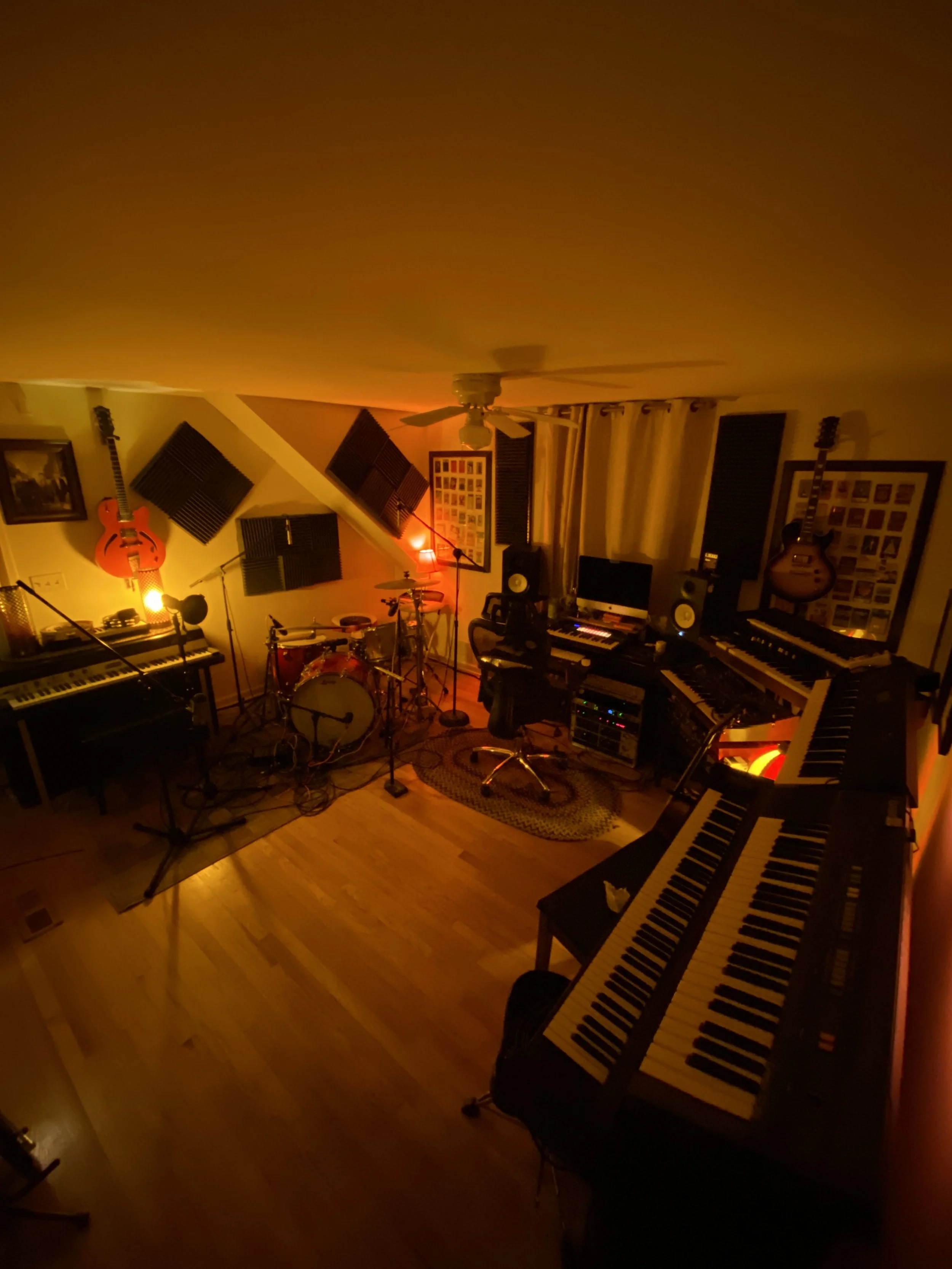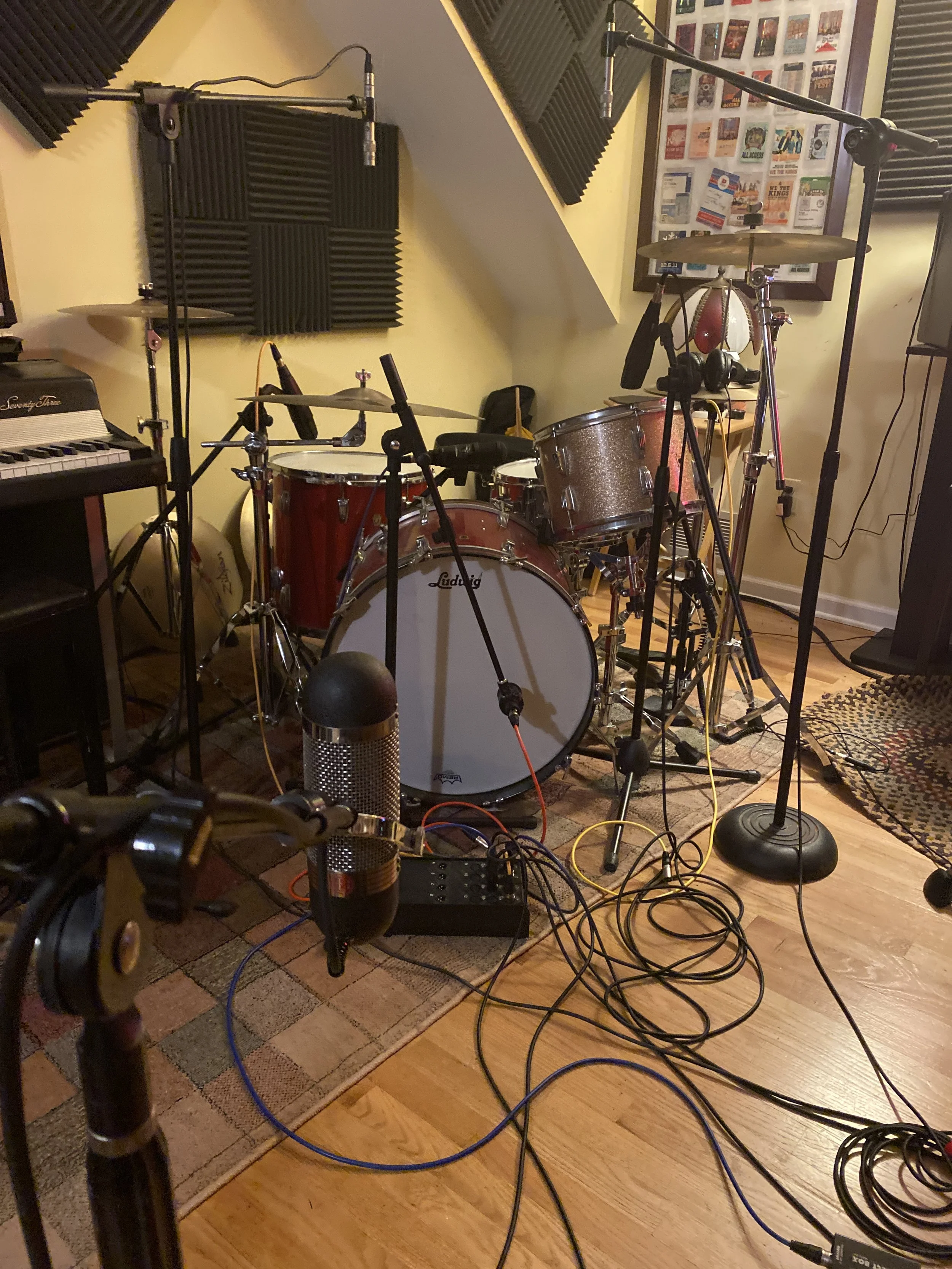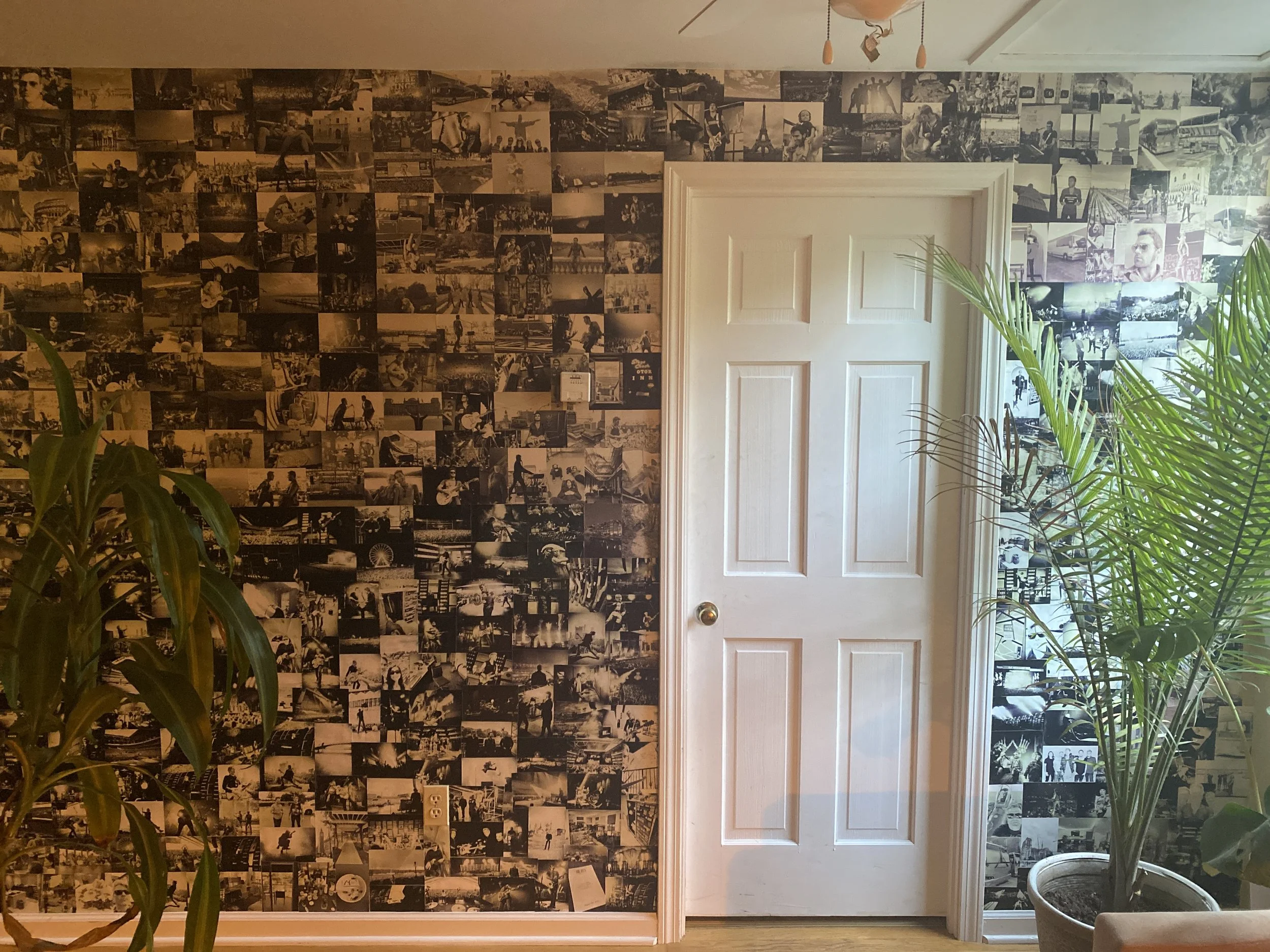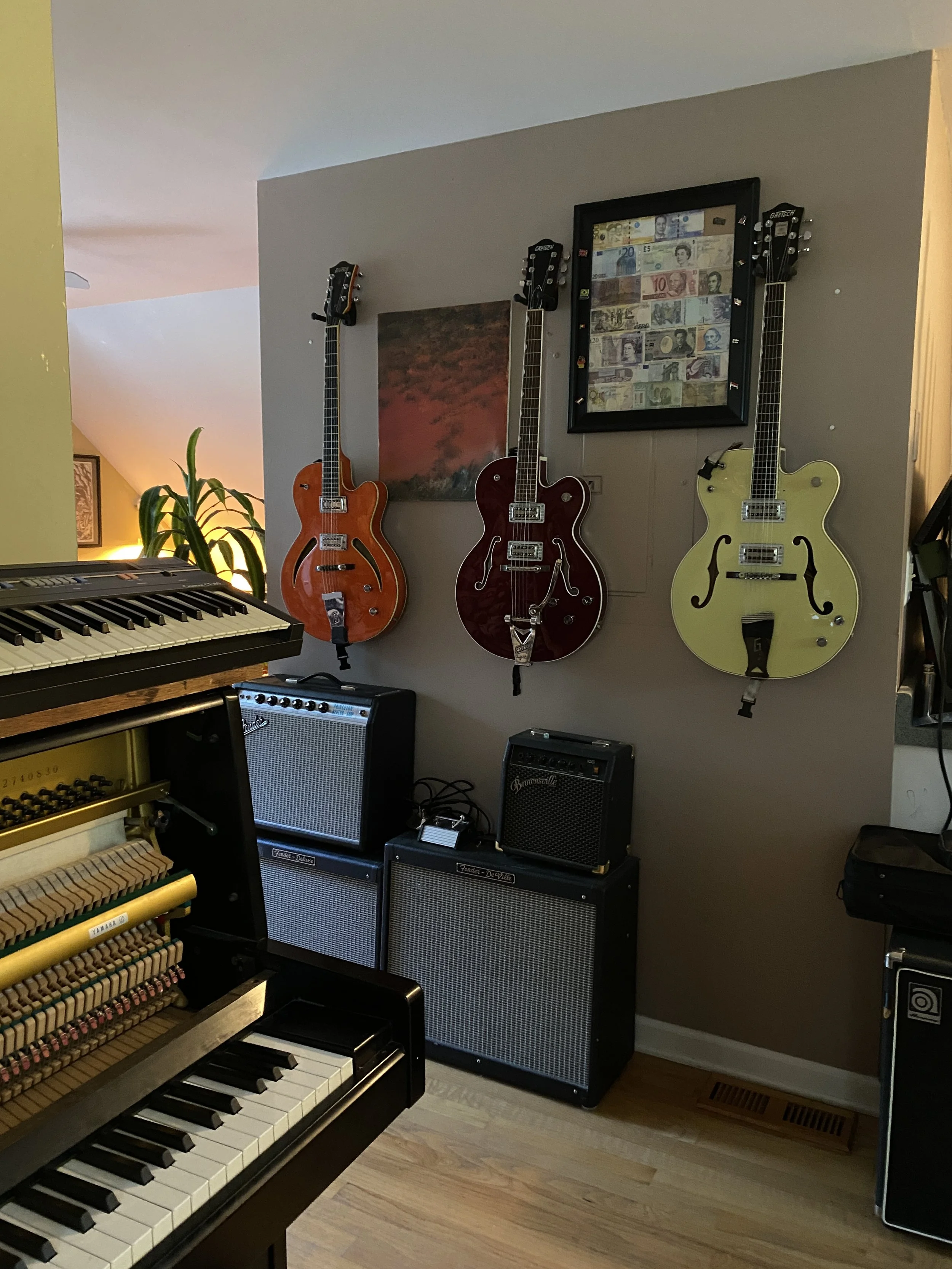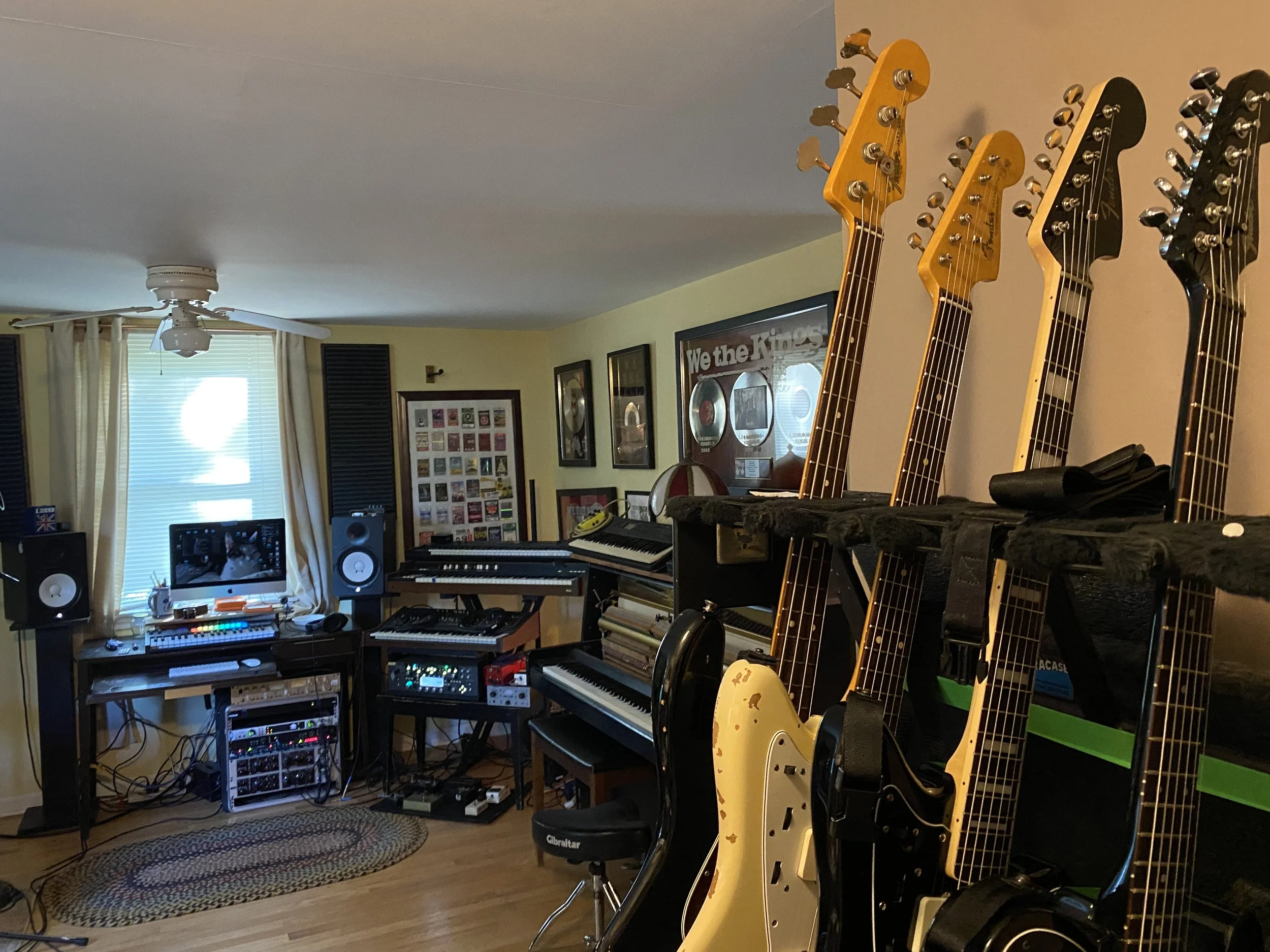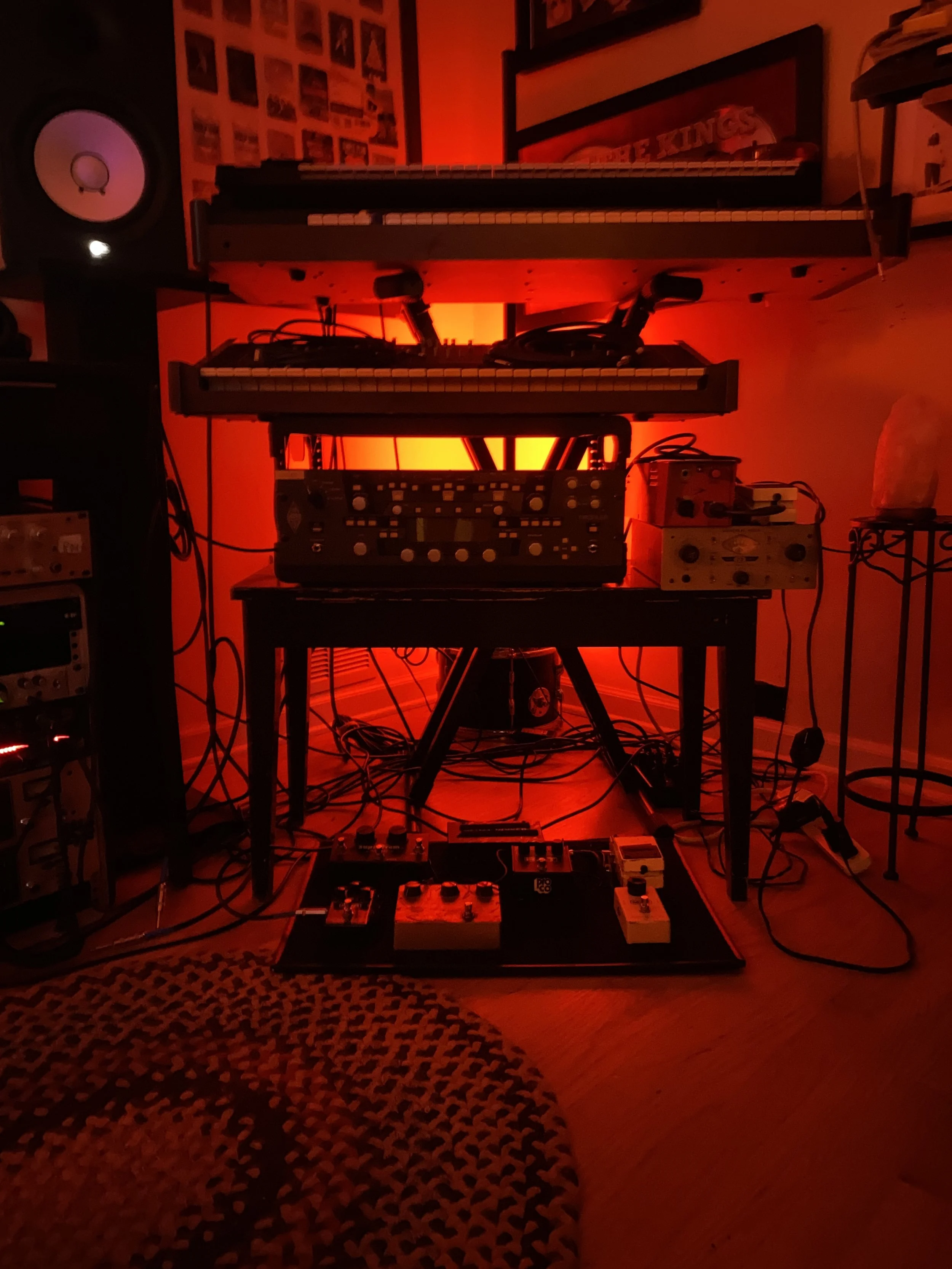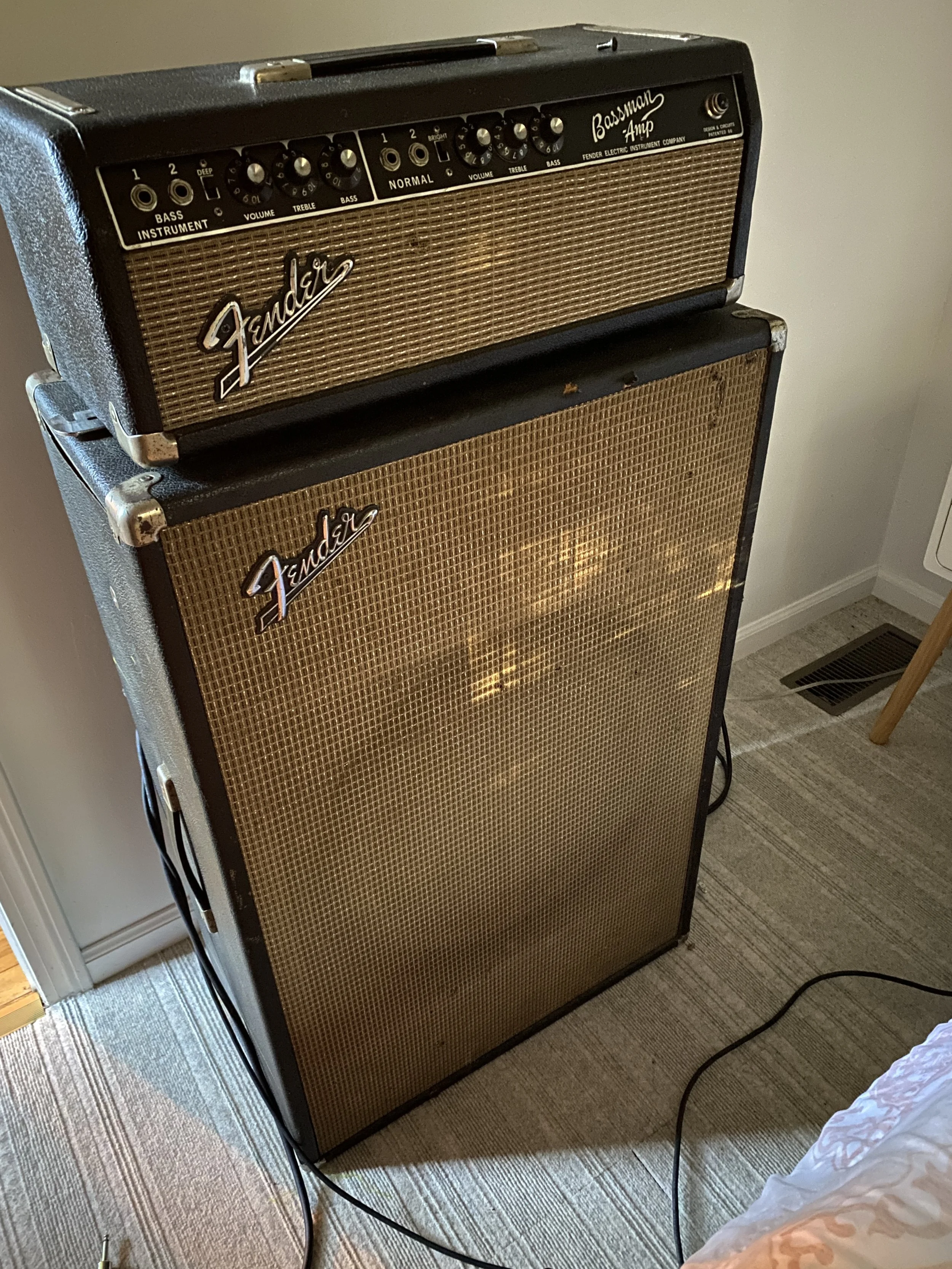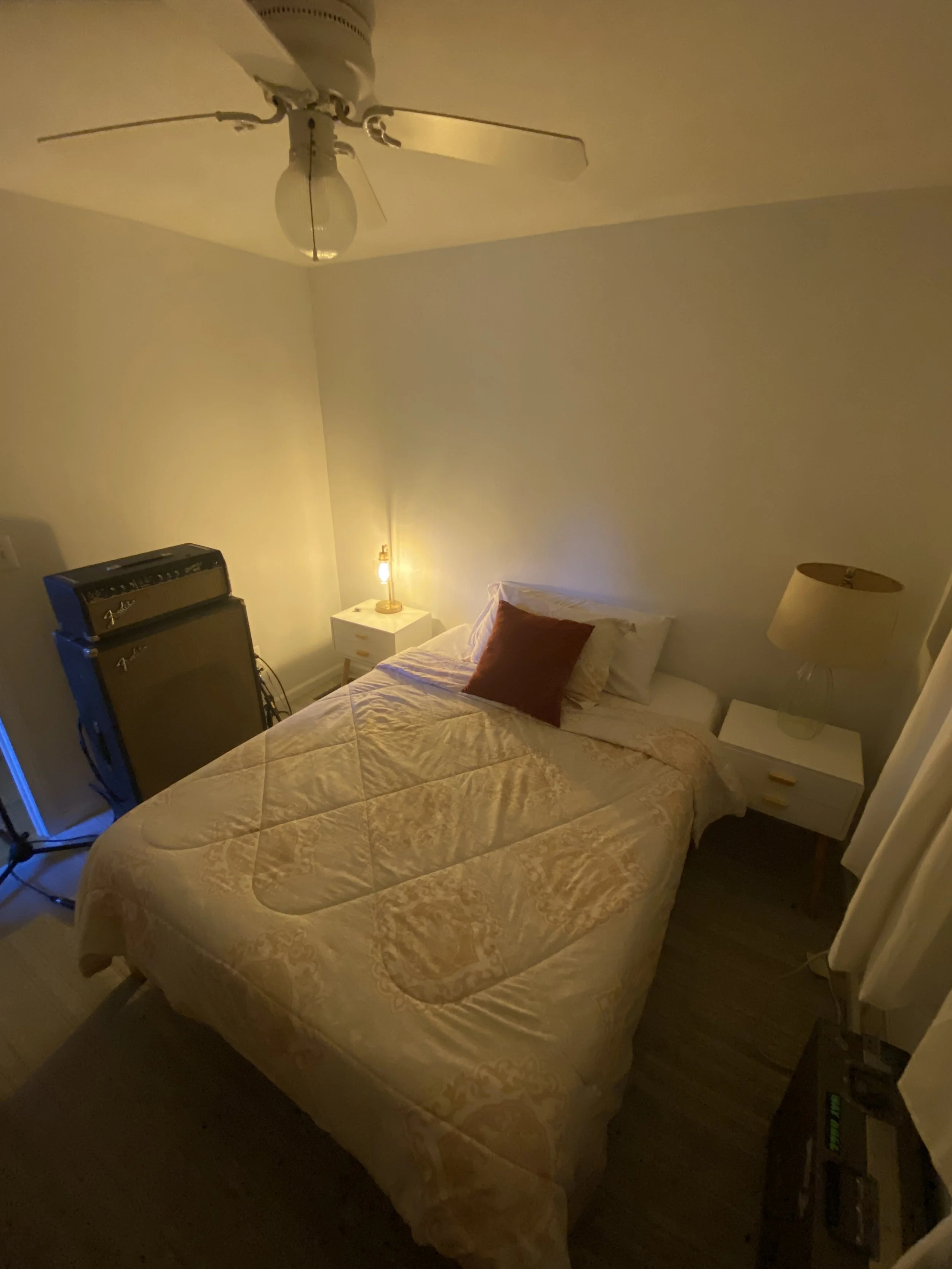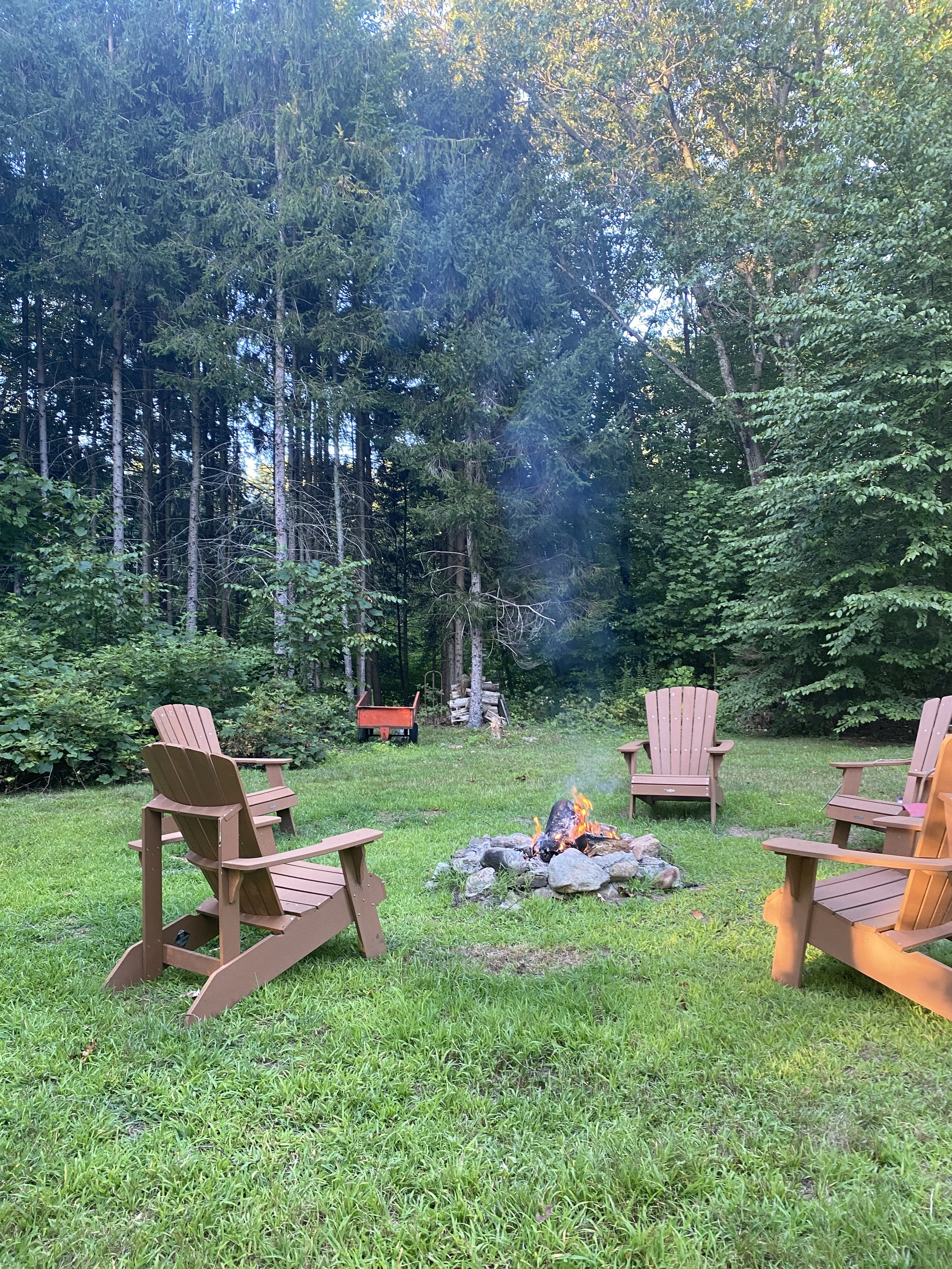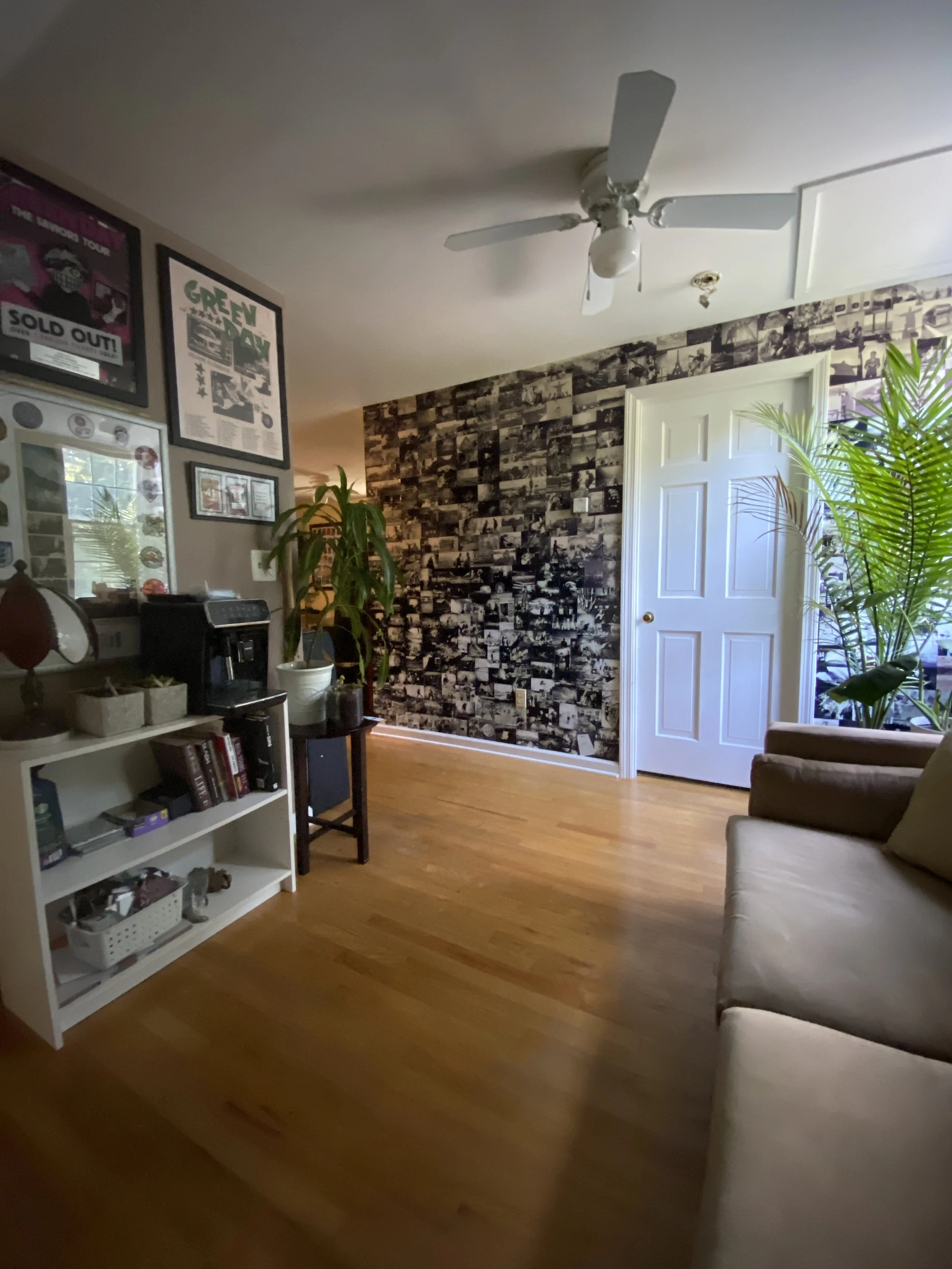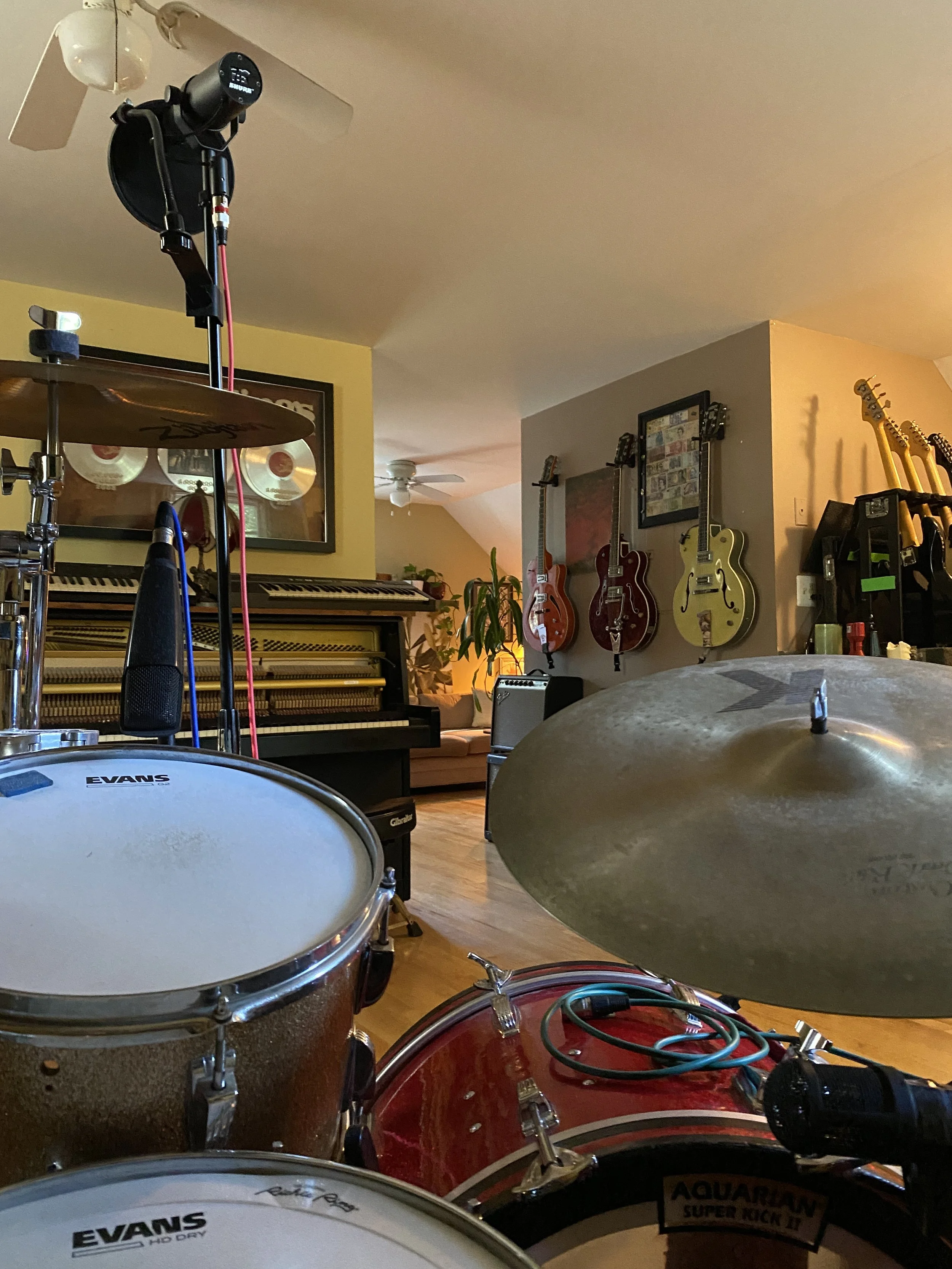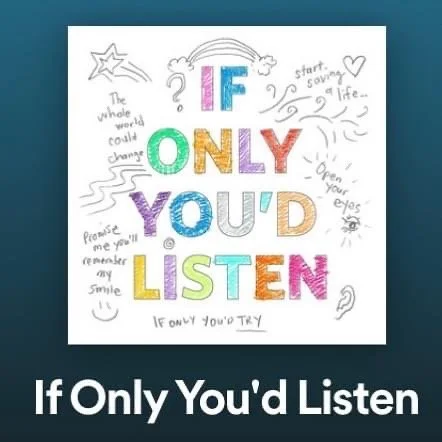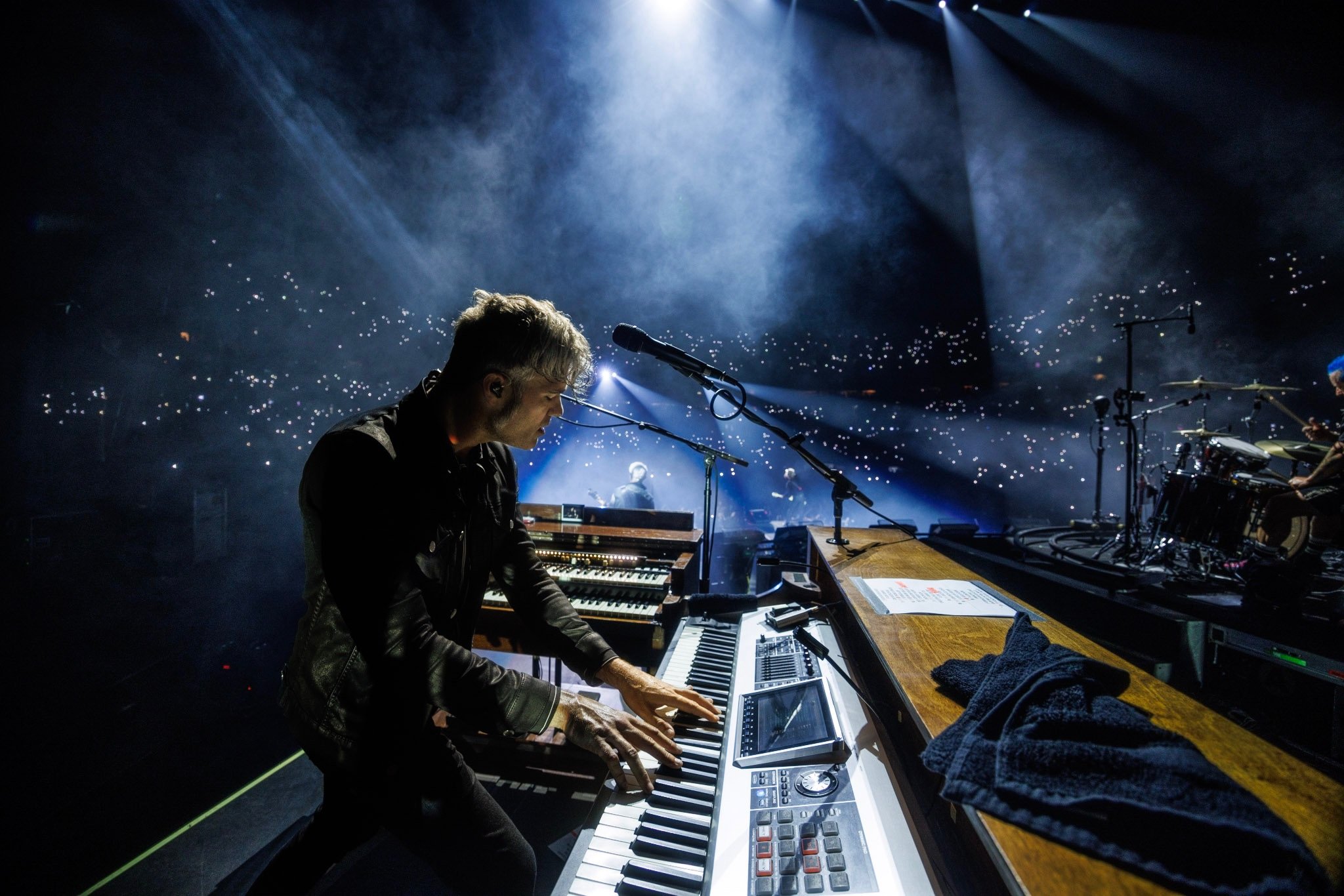
My musical journey began at a young age, sitting behind the drums and playing along to my favorite songs. As soon as I could, I joined the middle school marching band as a snare drummer. It was also during those years that I discovered my passion for rock music. In the winter of 1993, I formed my first band with my closest friends, Mark Marenick and Joe Ballaro—two people who would go on to shape my musicality and remain my regular collaborators to this day. After some brainstorming, we settled on the name "Malpractice," but, being the '90s, we put our own spin on it, spelling it "Malpraktis" with a backwards "K."
We played every day and performed anywhere we could, a routine that continued throughout high school. During band rehearsals, I began learning guitar simply by watching my bandmates. I didn’t practice to become a virtuoso; I practiced because I was eager to write songs. At the same time, I was improving my piano skills, and soon, guitar became another tool to spark new ideas.
We began writing and recording more original songs, printing and assembling our own cassettes and CDs. Every weekend, we’d post flyers on telephone poles, hoping to draw a crowd to whatever venue we were playing. Eventually, we won a statewide battle of the bands hosted by WPLR and the legendary Toad’s Place. It was surreal— we reached a point where we could play Toad’s on a Tuesday night bring in 200 people. For a group of high school kids, that felt like the peak of rock 'n' roll infamy!
After high school, Malpraktis became Starside, and I switched to guitar and vocals. It was my way of getting closer to the songs. We kept doing what we knew best—playing live as much as possible. We released an album that I haven’t listened to since—and I’m not sure I ever will, haha. We toured on that record, but it wasn’t the kind of touring I’d later experience. Still, I had dreamed of this, and finally, I was going on my first DIY tour. We booked all our shows, printed T-shirts, and packed into a 15-passenger van for five weeks, playing for other bands and the occasional bartender. We lived off canned food and whatever money we could make from shows, but it usually only covered gas and lodging. Some nights, we'd sleep in the van behind the venues. I was tired, hungry, broke—but I was having the time of my life.
As Starside neared its end, I decided to give college a try. I was working at Sam Ash Music in the drum department and attending school full-time. It was busy, but I still made time for music, even in class, where I found myself filling notebooks with lyrics instead of lecture notes. During this time, I recorded two solo albums—one locally in New Haven, the other in a proper studio in Boston. But I still hadn’t found my voice. I quickly realized that college wasn’t for me—my energy and passion were elsewhere. So, I left and moved to Nashville, TN.
In retrospect, I’m not sure what I was thinking, but I knew I wanted to be where the writers were. I lived in a small apartment in Berry Hill, just a couple miles from downtown. By day, I was selling shoes, and by night, I’d be deep on the list for open mics or sitting in songwriter circles. Through all of this, I realized my songs still weren’t quite there. I had good ideas, but I needed to write more. I hadn’t yet tapped into the source. It was a humbling experience—I wasn’t as good as I thought, but I wasn’t discouraged. I kept grinding, writing more songs, and performing.
Truthfully, Nashville was a great experience, and living on my own for the first time was eye-opening, but I began to miss home—a place where I felt my music was thriving the most.
I returned home, working random jobs while figuring out my next move, which would ultimately lead to the start of a new band. By this time, I was playing more piano and writing loads of ideas, but I still hadn’t found a clear vision—until I linked up with a drummer friend Jon Scerbo whose energy gave my songs new life. We spent a lot of time woodshedding, working on arrangements, and tightening up our set. I’d never heard or played music like this before—it was exhilarating and refreshing. I found myself immersed in the wonder of the unknown, discovering a whole new musical landscape.
We were a duo with a mighty sound, and from the first show onward, "The Queen Killing Kings" started generating a buzz. We played throughout Connecticut, Massachusetts, and New York, and even entered a Lower East Side battle of the bands, where we played first out of 30 bands and ended up winning. The prize was a trip to Los Angeles to perform at the Key Club for a national competition. We placed 3rd, and unknowingly caught the ear of our future manager, who later introduced us to Jay Finkel and Mike Helpern, the owners of Dirty Kicks, a NYC-based production company.
In 2006, TQKK recorded an album with Finkel at Skyline Studios in Midtown NYC. For months, we drove down from Connecticut to work in the studio. With a finished record in hand, we began shopping it around and playing as many shows as possible. During this time, I was introduced to Crush Management, based in NYC. They represented bands like Fall Out Boy, Panic! At The Disco, and others gaining traction at the time. They also worked with an artist named Jessie Poland, aka Charlotte Sometimes, who was looking to put a band together. I ended up joining her as her keyboard player.
Charlotte's debut album, Waves and the Both of Us, was released in 2008 by Geffen Records and peaked at #3 on the Billboard Heatseekers chart. This was my first real exposure to how a professional management company and a major label operated. Not long after, I found myself behind the console at Jack Joseph Puig’s studio, listening to him passionately explain his mixing process for the album. Geffen threw an album release party on the rooftop of the Atlas Building in NYC, where we performed for industry insiders, friends, and family. It was an unforgettable way to launch a short but memorable run with the band.
We kept busy, playing multiple showcases at SXSW and touring with artists like Gavin DeGraw, Pat Monahan of Train, Butch Walker, Katy Perry, We The Kings, and Gym Class Heroes, to name a few. Like most new bands, we spent a lot of time grinding it out in a van before we could afford to share a bus. I distinctly remember feeling like we never left that van. At one point, we finished a tour in NYC, then drove 52 straight hours to join another tour in Los Angeles. Thinking back on it now, it’s crazy how many times I’ve crossed the country.
We shot a music video for the lead single, "How I Could Just Kill A Man," which ended up in regular rotation on VH1, and Charlotte was added to their “Artist You Oughta Know” roster. It was surreal waking up and seeing my face on the VH1 Top 20 countdown.
While on tour, I got a call from Diana Meltzer, owner of Wind-Up Records. She expressed interest in signing TQKK after hearing our album. Wind-Up had major success with bands like Creed, Evanescence, and Finger Eleven—though our sound was different, I admired their roster and success. I performed a private showcase for the label in NYC, and they also saw us play a full-band show on the Lower East Side. Not long after, we signed with Wind-Up and returned to the studio with Finkel to record additional tracks. Wind-Up released Tidal Eyes in 2009, and after more years of supporting acts like Our Lady Peace, The Kooks, and Superdrag, we returned to Los Angeles to record an EP with producer Matt Radosevich. One of the songs, “Diamond Eyes,” was later released as a single by Boyz II Men on their 2012 album Collide.
After recording the EP, TQKK unexpectedly found a new sound and identity in our manager’s living room, nestled in the hills of Silverlake, CA. The house was full of energy, and we couldn’t help but be inspired. We’d originally gone there to write and hang out, but with musicians and engineers constantly passing through, the creativity flowed effortlessly. We’d wake up, work on an idea, and by evening, have it recorded. It was a magical time, and I look back on those days with great fondness.
This creative burst led to an album that captured the moment, reflecting the energy of everyone involved. After a week of writing and recording, we had a batch of songs, all performed live with everyone in the same room. The album was engineered by Simon Katz (Youngblood Hawke) and Christian Letts (Edward Sharpe and the Magnetic Zeros). This wasn’t the plan—we were there to figure out TQKK’s next move—but the inspiration took over. With instruments scattered around and recording gear set up, artists like Rocco Deluca added their unique vibe to the sessions.
We had the sound and the album before we had a name. The songs were a far cry from the piano-driven style of TQKK, now dominated by acoustic guitars, stomp-box percussion, and handclaps. After much deliberation, we decided to call this new chapter Smoke Signals. Although the band’s lifespan was short, some of the tracks from the self-titled album went on to be featured on hit TV shows like Parenthood and Weeds.
Returning to Connecticut, I kept writing, but without a band to focus on, I became an instructor at the School of Rock. The role tapped into my inner coach and teacher, and I found immense joy in helping others discover their musical voice. Soon after, I was offered the head director position at a new School of Rock opening nearby. I was excited about the opportunity and eagerly awaited the construction of the new site when I received a career-changing phone call.
It was Travis Clark from We The Kings, whom I had met years earlier while touring with Charlotte Sometimes. They were looking to add a fifth member—someone who could sing and play multiple instruments. After some discussion, they decided I was the right fit. I had been a fan of the band and its members, so this was an incredible offer. However, I was torn between this new opportunity and the responsibilities of running a music school. After much deliberation, I chose the band. I joined We The Kings, and for the past 13 years, I’ve toured the world on countless sold-out tours. We’ve continued to write and produce our own albums, and We The Kings became a platinum and gold-certified band. In 2012, we even dethroned Beyoncé from the #1 spot on iTunes with our album Somewhere Somehow, released on S-Curve Records.
In 2017, I was introduced to Melissa Mulligan, who was running a vocal studio for aspiring artists at the time. We quickly became close friends, and she later went on to create the Music Career Mastermind, a vibrant online community that inspires creativity and offers coaching in production, songwriting, social media, marketing, and, most importantly, community building. During our early conversations, I mentioned to Melissa that I wanted to start sharing my passion and practices as a writer, and she graciously invited me to coach her students. Since then, I’ve had the privilege of being a songwriting coach for hundreds of students in both group and private settings. Over the past seven years, I’m proud of what we’ve accomplished with and for our artists.
When COVID hit and the touring industry came to a halt, I shifted my focus to studio projects, writing, producing, and mixing songs for artists, films, and even toys. Eager for new work, I reached out to my dear friend and former bandmate, Jessie Poland, who was running her own sync company, Head Bitch Music, while still pursuing her own music career. She gave me the opportunity to produce music for Tonies Toys, which turned out to be a fantastic experience.
These days, I continue working full-time in the studio and have taken on even more songwriting students, helping them nurture their craft and creativity.
After a We The Kings tour in February 2024, I received a call that I still can’t fully comprehend. Green Day, yes—Green Day—wanted me to audition as their keyboardist for the Saviors Tour. Their manager, who had once worked with Charlotte Sometimes, had put my name forward. I was asked to submit a video audition, performing a live version of a song they chose to showcase my keyboard and vocal skills. I was ready for this moment; it felt like my chance to play in the major leagues. Not that We The Kings isn’t a huge accomplishment, but playing with Rock and Roll Hall of Famers like Green Day would be an unparalleled experience.
I sent in my video, but after a couple of weeks, I started to think about the many other talented musicians who were also vying for the spot. I didn’t depend on the outcome, but I was confident in my submission. Then, one morning, I woke up to the news that the gig was mine. I had no idea what to expect, but I was ready.
From March through September 2024, I played keyboards and sang with Green Day, from national TV appearances like Good Morning America and the iHeart Music Awards, to sold-out stadiums across Europe and the US, headlining major festivals like Rock Am Ring, Rock Im Ring, and the Isle of Wight. I knew the position was temporary, but I soaked up every moment spent with the Green Day and I am forever grateful to be a part of their family.
These days, when I’m not on the road with We The Kings, I continue to write and produce music in my private studio, and I coach aspiring songwriters.
Bring Your Songs to Life in a Private Recording Studio!
Located in Oxford, CT, this private studio blends the warmth of analog with the precision of digital recording gear. Surrounded by a curated selection of inspiring instruments, it’s the perfect space to transform your musical ideas into fully realized tracks.
Need a creative escape? A private bedroom and bathroom make this an ideal retreat for songwriters looking to dive deep into their craft.
Whether you're just starting out or already seasoned, all artists and vocalists are welcome—especially those in need of instrumentation or production support.
Now booking sessions for September through mid-October.
Affordable rates. Great gear. Inspiring vibes.
Let’s talk about your sonic vision!
📧 Contact: coleyotoolemusic@gmail.com

Songwriting/Composition
As a songwriting coach with The Music Career Mastermind program, I’ve had the opportunity to work with songwriters of all ages and skill levels, guiding them toward achieving their artistic goals through song.
In our one-on-one sessions via Zoom, you'll learn how to explore, process, and organize your ideas to bring your vision to life. We’ll work together to uncover your unique creative space and focus on the music you’re passionate about creating. Through shared techniques and practices, we’ll dive into every aspect of songwriting, including melody, harmony, arrangement, voicing, rhythm, and lyrics, unlocking your full writing potential.
Click the link below to book a single session or discounted blocks. Looking forward to making music!
Book your session
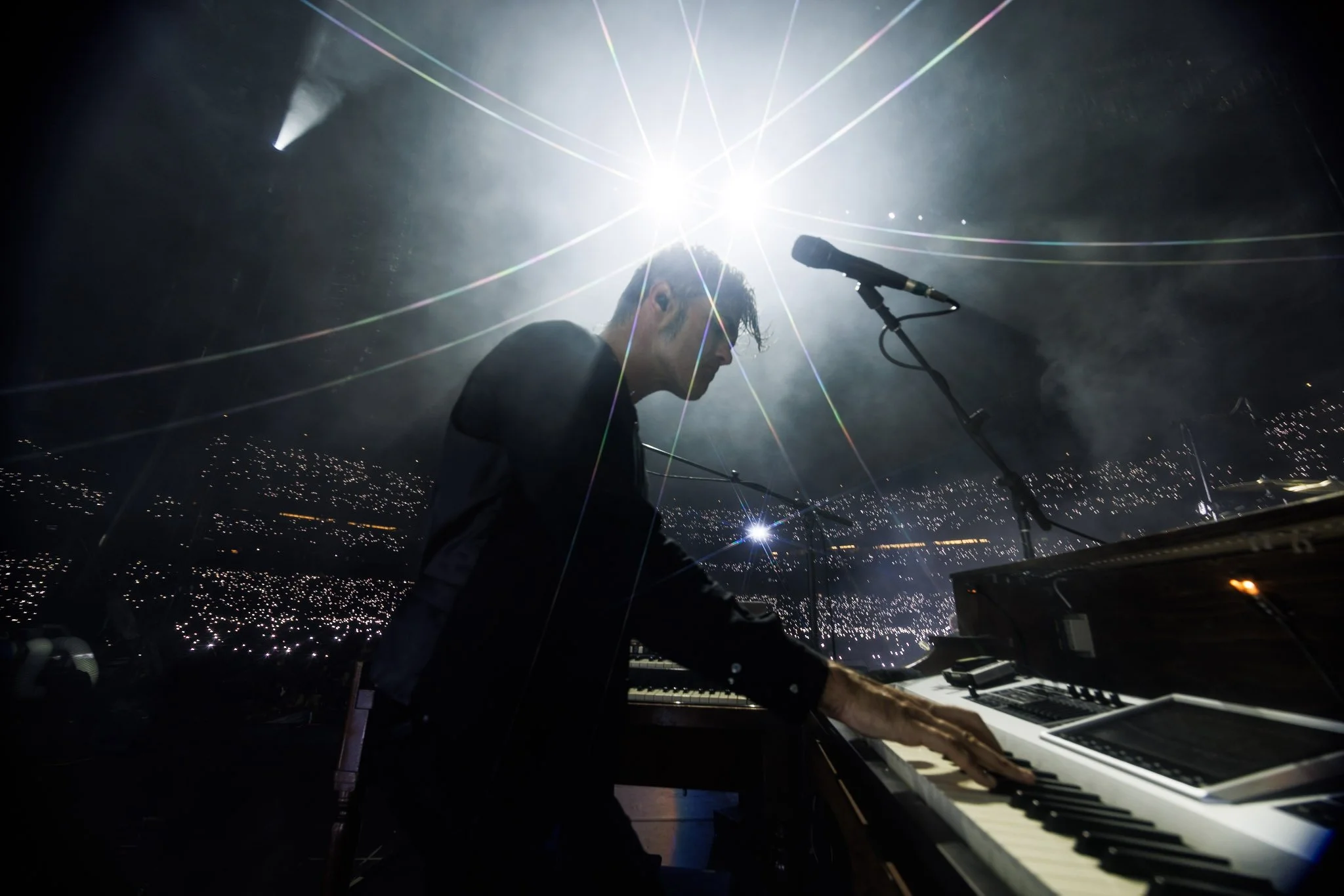
CUSTOM SONGS FOR ANY OCCASION!
Original Compositions with lyrics and music tailored to your specific needs.
Vocal and (1) instrument Accompaniment Mix/Master - $1000
Vocal with Full Production Mix/Master (ie: Drums, Guitars, Keys..) - $2000
*Musicians and vocalists (male or female) provided for tracking.
Song/Session files delivered in a digital format
Let’s talk about what your vision is! coleyotoolemusic@gmail.com
Hey creators!! Need an original composition (song, score, soundtrack) for your project? Lets discuss your specific needs coleyotoolemusic@gmail.com
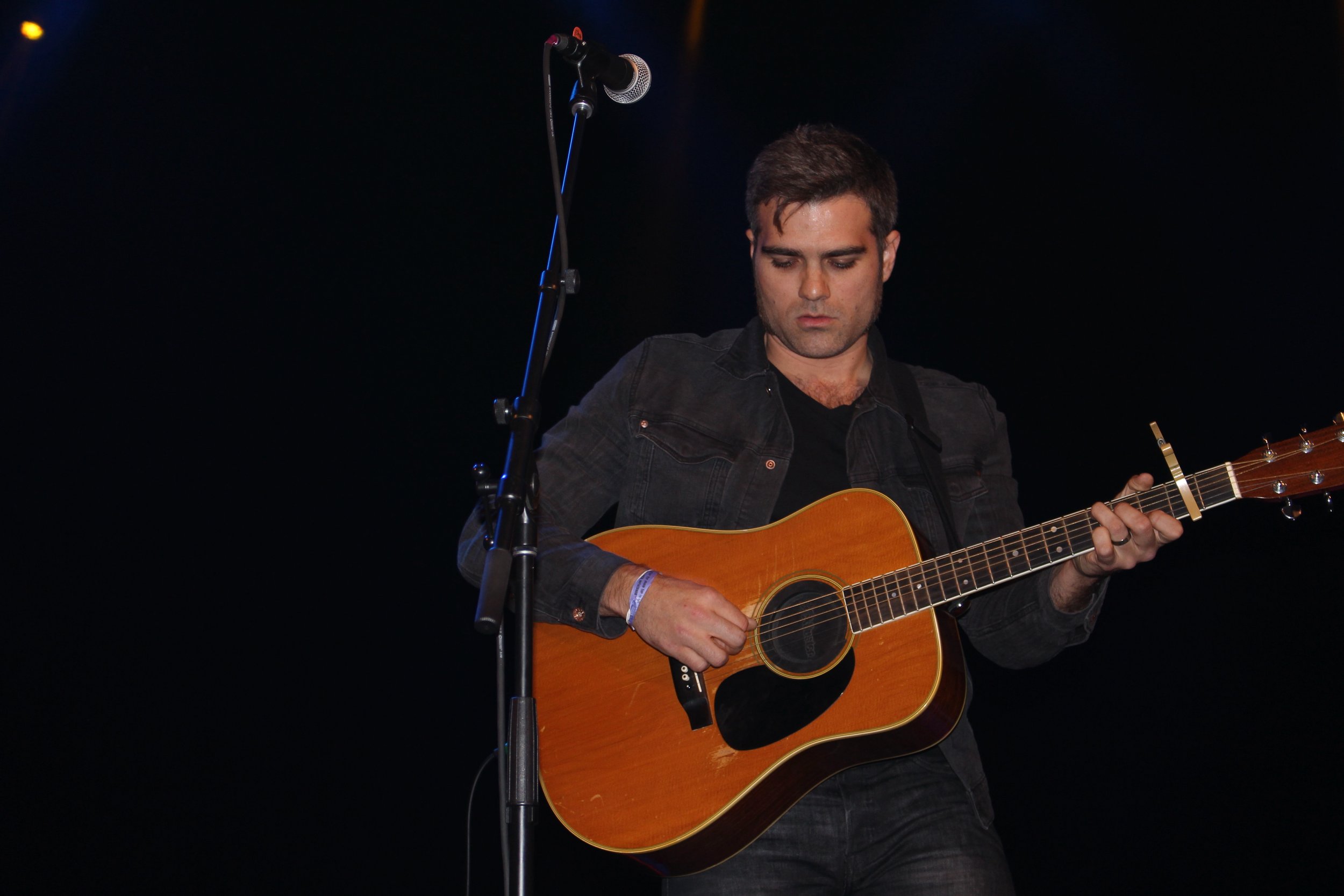
PRIVATE EVENTS
Available for private bookings performing a mix of covers and originals no matter how large or small the gathering!! Solo or Full band bookings available.
Lets discuss your needs! coleyotoolemusic@gmail.com
Here are some of the songs and productions I have worked on. Enjoy!
tour dates








































